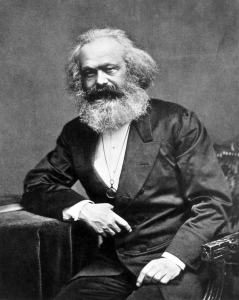
Socialism and communism are two political theories that, although often used interchangeably, should not be considered identical. Socialism advocates for property and resources to be owned and controlled by the state. In other words, socialism is when the state provides the essential human needs, such as food, shelter, and healthcare. It’s been criticized as being too conducive to poor quality services within these essential human needs when compared to the same being provided by the private sector. In the United States, for example, universal healthcare is perceived by some as being ineffective and un-personalized healthcare with long waiting lists.
Socialism pre-dates communism, and Marx himself was inspired by French socialism. One key practical distinction from communism stems from the fact that socialism as a theory can be implemented through certain policies rather than being implemented as a new form of government. This is evidenced in places like Europe, and even to a certain extent in the U.S, although minimally, with policies such as universal healthcare.
Communism, unlike socialism, is not at all compatible with today’s forms of liberal democracy; it cannot be implemented through a certain policy or a politician’s platform. Marx viewed communism as the only way to achieve true equality in a society, meaning that within socialism, there is still room for inequality and class structure.
However, as “close cousins” (as much as political theories can be), the two share several core tenets, and in this article, I’ll expand on each of those.
1. Both Were a Reaction to the Industrial Revolution
The late 18th century was a time of radical change as the Industrial Revolution re-organized human labor and production. The Industrial Revolution marked a transition from handmade goods to production lines dependent on machinery. Innovations in communication and traveling, in addition to new machinery such as the steam engine, accelerated the production of consumer goods. As more factories popped up in order to produce more and more things, individuals moved from isolated areas to urban areas, increasingly contributing to a consumer society focused on increased wealth and capital; at the same time, inequality between the wealthy and the poor increased despite overall qualities of life-improving, however marginal.
Both socialism and communism were founded on the recognition of a rather potent aspect of industrialization: the increased, and arguably normalized, exploitation of the working class. Indeed, individuals who owned factories and corporations were able to concentrate their capital wealth, while those who made up the working class — in other words, the vast majority of people — were not very wealthy at all. Thus, socialism is a close cousin to Marx’s communism as both are theories posited as ways to lessen or even eradicate the unequal distribution of wealth that is rampant in a capitalist society, especially on a global scale and most argue both go too far in doing so and rather bind people up with regulation rather than allow them to freely act and exercise choice.
2. Both Support a Transfer of Ownership
Both socialism and communism advocate for some form of public ownership. While there are many different thinkers within socialism, all would agree that a pillar of socialism is public ownership, specifically of the means of production. Also known as common ownership, this concept essentially means transferring the means of production from the capitalist class and into the public sector; in other words, the government. Socialists view this as an equitable way to distribute resources and wealth, as the exploitation of the working class is understood as deeply linked to economic inequality. Socialism is highly critical of private property and instead prioritizes the collective, eliminating individual expression, personal and fundamental rights protected by the constitution. This would result in essential parts of subsistence and human needs being owned by the state; this includes food, shelter, healthcare, etc.
While making up the foundation of communism, public ownership is taken a step further by Marx. Marx argued that in the early stages of communism, there would be public ownership that is identical to that of socialism. However, in later stages of communism, ownership of the means of production would be by the people of the communist society, instead of simply the state or government. This means that any asset is open and available to every member of a given community. Inherently, socialism is a close cousin to Marxist communism as both possess the same core belief of removing private ownership; however, they differ in the extent to which ownership is shared. This makes sense, considering Marx viewed socialism as an intermediate stage between capitalism and communism.
3. Equal Society is the End Goal
Through transferring the means of production and rearranging how people access their means of subsistence, both socialism and communism aim to form an equal society rather than providing freedom to its citizens, as they are both foundationally reactions to what is perceived as unequal conditions created and sustained in capitalism, even with the possible. A moderate form of regulation is not considered to be socialism if the policies don’t infringe on other’s rights nor harm another person as founded by our constitution. Many proponents of socialism and communism ignore these democratically-given constitutional rights. Within socialism, equality is mostly tied to economic equality; therefore, society would not have to focus on merely securing its own means of subsistence and can instead rely on the state. With this economic equality and hence security, individuals have equal access to opportunities otherwise not available to people who struggle to simply sustain the basic necessities of life, such as food and shelter. There is no dominating economic class. This is the same as in communism. However, within socialism, class distinctions can still exist even though its ultimate aim is to decrease and gradually eliminate class distinctions. Communism instead is the complete elimination of any class, whether it stems from occupation or economic background or lineage.
